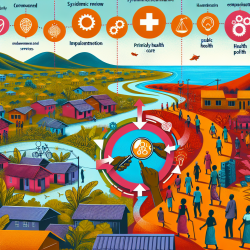Introduction
The Play, Learn, and Teach Outdoors—Network (PLaTO-Net) project has made significant strides in harmonizing the terminology, taxonomy, and ontology of outdoor play, learning, and teaching. This initiative is crucial for educators and therapists aiming to leverage outdoor environments to enhance child development. The PLaTO-Net project, as detailed in the research article "Play, Learn, and Teach Outdoors—Network (PLaTO-Net): terminology, taxonomy, and ontology," provides a structured framework that can be integrated into educational and therapeutic practices to improve outcomes for children.
Key Findings from PLaTO-Net
The PLaTO-Net project identified 31 key terms related to outdoor play, learning, and teaching, creating a common language that facilitates interdisciplinary collaboration. This standardized terminology is designed to be applicable across various cultural and educational contexts, making it a versatile tool for practitioners worldwide.
The project emphasized the interconnectedness of outdoor activities and their impact on health and well-being. By providing a clear framework, PLaTO-Net helps practitioners understand the multifaceted benefits of outdoor play, which include physical activity, reduced stress, and enhanced social interactions.
Implementing PLaTO-Net in Practice
For speech-language pathologists and educators, integrating PLaTO-Net's findings into practice can enhance the effectiveness of interventions. Here are some practical steps:
- Adopt Standardized Terminology: Use the PLaTO-Net terms to ensure consistency in communication and documentation. This helps in creating a shared understanding among interdisciplinary teams.
- Design Outdoor Learning Environments: Utilize the taxonomy to design outdoor spaces that promote play and learning. Incorporate natural elements like green spaces and loose parts to stimulate children's curiosity and engagement.
- Facilitate Interdisciplinary Collaboration: Use the ontology model to collaborate with other professionals, such as educators, environmentalists, and policymakers, to create comprehensive programs that support child development.
Encouraging Further Research
While PLaTO-Net provides a robust framework, ongoing research is essential to adapt and refine these concepts. Practitioners are encouraged to engage in research that explores the long-term impacts of outdoor play on various developmental domains, including language, cognitive, and social skills.
By contributing to the growing body of evidence, practitioners can help shape policies that prioritize outdoor play as a critical component of child development programs.
Conclusion
The PLaTO-Net project offers valuable insights for enhancing child development through outdoor play. By adopting its terminology, taxonomy, and ontology, practitioners can improve their practice and contribute to a broader understanding of the benefits of outdoor environments. For those interested in delving deeper into the research, the original paper can be accessed here: Play, Learn, and Teach Outdoors—Network (PLaTO-Net): terminology, taxonomy, and ontology.










